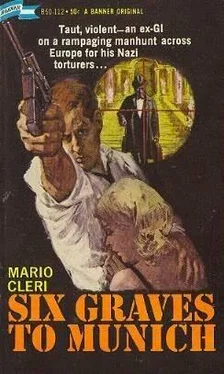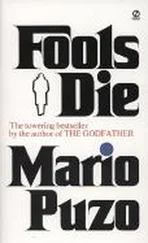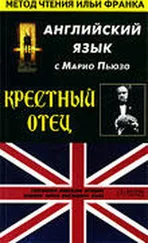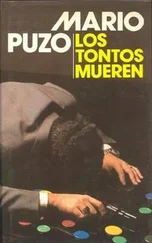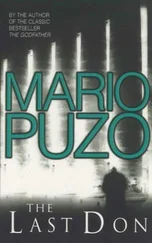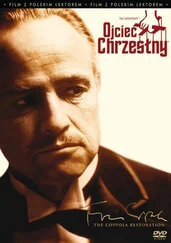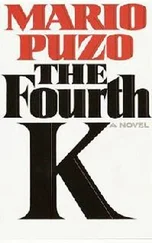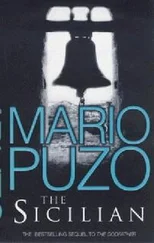It almost looked as if Pajerski would wave her away. But then he grinned, his warty piggy face becoming a mass of joviality. He pinched the blond waitress so hard that she gave a little scream of pain.
Rogan called to the waitress and asked her for a pencil and a piece of notepaper. He looked at his watch. It read 7:30. On the rough brown notepaper he wrote: “I will turn your screams of pleasure into pain. Rosenmontag , 1945, in the Munich Palace of Justice.”
He waited until his watch read 7:55; then he called a waitress over and handed her the note. “Give this to Mr. Pajerski,” he said. “Then come right back to me and I will give you this.” He showed her a banknote that was more than her weekly salary. He didn’t want her standing near Pajerski when the booby trap went off.
Pajerski was scratching his chin with the white king when the waitress handed him the note. He read it slowly, translating the English audibly, his lips moving. He raised his eyes to stare directly at Rogan. Rogan stared back at him, smiling slightly. His watch read 7:59. And then as he saw the recognition slowly dawn in Pajerski’s eyes the white king exploded.
The explosion was deafening. Pajerski had been holding the chess piece in his right hand under his chin. Rogan had been staring into his eyes. Then suddenly Pajerski’s eyes disappeared in the explosion, and Rogan found himself staring into two empty bloody sockets. Pieces of flesh and bone spattered all over the room, and then Pajerski’s head, its flesh shredded, slumped over on flaps of skin that were still holding the neck to the body. Rogan slipped out of his seat and left the café by the kitchen door. The screaming, stampeding crowd took no notice of him.
Out on the street he walked one block to a main avenue and hailed a taxi. “To the airport,” he told the driver; then, just to make sure, he said, “Take the street that goes past the American consulate.”
He could hear the whine of police car sirens speeding to the Café Black Violin. In a few minutes his taxi was on the broad avenue that led past the consulate. “Don’t go so fast,” he told the driver. He leaned back so that he could not be seen from the street.
There was no Mercedes limousine waiting there. The street was empty of all vehicles, which was in itself unusual. But it had a hell of a lot of pedestrians, waiting to cross at corners and window-shopping. And most of the pedestrians were big, burly men. To Rogan’s experienced eye they had secret police written all over them. “Speed it up to the airport,” he told the driver.
It was then that he noticed what seemed like a physical coldness in his chest. It was as if his whole body were being touched by death. He felt the chilliness spread. But he was not cold. He did not feel any real physical discomfort. It was simply as if he himself had become some sort of host to death.
He had no trouble getting on the plane. His visa was in order, and there was no sign of any special police activity at the airport. His heart beat swiftly when he boarded the aircraft, but again there were no complications. The plane took off, climbed, and then it leveled off and headed for the German border and Munich.
That night Rosalie left her job as nurse’s aide in the Munich Palace of Justice at 6:00 p.m. The young doctor who worked with her insisted she have dinner with him. Afraid of losing her job, she agreed. He made sure the meal took a long time by ordering several courses. It was after 9:00 p.m. when they finished. Rosalie looked at her watch. “You must excuse me; I have an important engagement at ten,” she said, and started to gather up her coat and gloves.
The young doctor had a disappointed look on his face. It did not occur to Rosalie that she could miss meeting the plane one night and keep her escort company for the rest of the evening. If she missed meeting the Budapest plane even one time, it would mean she thought Rogan was dead. She walked out of the restaurant and hailed a taxi. By the time she got to the airport, it was nearly 10:00. By the time she ran through the terminal to the Budapest plane arrival gate, passengers were already coming out. Out of habit, she lit a cigarette as she watched them. And then she saw Rogan and her heart nearly broke.
He looked dreadfully ill. His eyes were sunken, the muscles of his face were rigid, and there was a fearful stiffness in his body movements. He had not seen her, and she started running toward him, calling his name through her sobs.
Rogan heard the clicking of a woman’s heels on marble, heard Rosalie calling his name. He started to turn away, then turned back to catch her as she rushed into his arms. And then he was kissing her wet face and her lovely eyes as she whispered, “I’m so happy, I’m so happy. I came here every night, and every night I thought you might have died and I’d never know and I’d be coming here for the rest of my life.”
Holding her close, feeling her warmth, Rogan felt the icy chill that had been part of his body begin to melt away, as if he were coming alive again. He knew then that he would have to keep her with him.

They took a taxi to the pension, and Rosalie led Rogan up to the room she’d had while she was alone in Munich. It was a comfortable place, half bedroom, half living room, with a small green sofa curved into its middle. There was a vase of wilted roses on the table; some of their scent still hung in the air. Rogan reached out for Rosalie as soon as they had locked the door behind them. They quickly undressed and went to bed, but their love-making was too frantic, too filled with tension.
They smoked a cigarette together in the darkness, and then Rosalie began to weep. “Why can’t you stop now?” she whispered. “Why can’t you just stop?”
Rogan didn’t answer. He knew what she meant. That if he let Klaus von Osteen go free, his life, and hers, could start again. They would stay alive. If he went after von Osteen the chances of his escaping were small. Rogan sighed. He could never tell another human being what von Osteen had done to him in the Munich Palace of Justice; it was too shameful. Shameful in the same way that their attempt to kill him had been shameful. He knew only one thing! He could never live on earth as long as von Osteen was alive. He could never sleep a night through without nightmares as long as von Osteen was alive. To balance his own private world he had to kill the seventh and last man.
And yet, in a strange way, he dreaded the moment when he would see von Osteen again. He had to remind himself that now von Osteen would be the victim, von Osteen would shriek with fear, von Osteen would collapse in terror. But it was hard to imagine all this. For back in those terrible days when the seven men had tortured him in the Munich Palace of Justice, in those nightmare days when Christine’s screams from the next room had set his body trembling with anguish, Rogan had come to regard Klaus von Osteen finally as God, had almost come fearfully to love him.
Rosalie had fallen sleep, her face still wet with tears. Rogan lit another cigarette. His mind, his invincible memory, and all the agonies of remembrance imprisoned him once again in the high-domed room of the Munich Palace of Justice.
In the early morning hours the jail guards would come into his cell with small rubber clubs and a battered tin bucket for his vomit. They would use the rubber clubs to beat his stomach, his thighs, his groin. Pinned helplessly against the iron bars of his cell, Rogan felt the black bile gush into his mouth, and he’d retch. One of the guards would skillfully catch the vomit in the tin bucket. They never asked any questions. They beat him automatically, just to set the proper tone for the day.
Читать дальше
